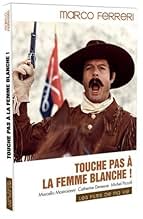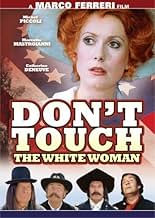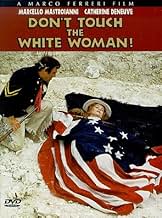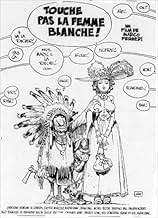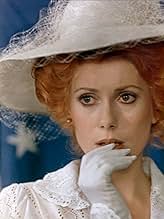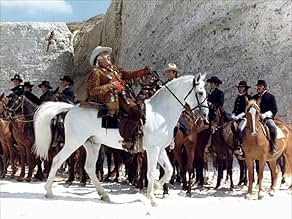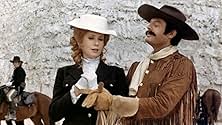A highly stylized surreal farce about the events leading up to Custer's Last Stand anachronistically reenacted in an urban renewal area in modern Paris.A highly stylized surreal farce about the events leading up to Custer's Last Stand anachronistically reenacted in an urban renewal area in modern Paris.A highly stylized surreal farce about the events leading up to Custer's Last Stand anachronistically reenacted in an urban renewal area in modern Paris.
- Rayon de Lune
- (as Franca Bettoja)
- Tom
- (as Franco Fabrizzi)
- Un homme du pouvoir
- (as Vedres et Boutang)
- Un homme du pouvoir
- (as Vedres et Boutang)
- Director
- Writers
- All cast & crew
- Production, box office & more at IMDbPro
Storyline
Did you know
- Quotes
The Mad Indian: It's your fauly, Sitting Bull. You sign peace treaties, and they wipe their asses with ourtreaties. They wipe their asses with them!
Sitting Bull: This is the soldier's fury. The wise President Nixon ignores all this, I hope.
The Mad Indian: They devastated our fields. Yes, our fields! They cut down our forests. Yes, our forests! They exterminated our game. Yes, our game! They poison us every day with their alcohol and their flour full of strychnine. But don't listen to me. I'm a madman! We are condemned to die on reservations. They slaughter us as soon as they have a chance, but their President doesn't know anything about it. But don't listen to me. I'm a madman. The President doesn't know anything about it.
- ConnectionsEdited into Marcello, una vita dolce (2006)
- SoundtracksGary Owen
(uncredited)
Played by military band and as motif throughout film
Made in the early 1970s, this surreal black comedy is usually interpreted as a scathing commentary on America's involvement in Vietnam, but I didn't see it that way. There is nothing in the film which significantly corresponds to the Vietnam conflict, and the few American symbols which show up are so awkwardly out of place and the characters exaggerated in such a ludicrous manner that it had the effect of constantly reminding me that this wasn't really about Americans. I can't claim to know how the European audience for which it was intended would have viewed it, but I saw it as a satirical look at European racism and colonialism (which, of course, would ultimately include both the genocide of Native Americans and the conflict in Vietnam) and a left-wing allegory of capitalism in which the Native Americans represent the oppressed working classes.
As a social/political satire, it achieves it's greatest success in depicting an absolute and brutal racism without being didactic or calling unnecessary attention to it. The most interesting character is Custer's Indian scout. Moving freely among both European and Native American societies, he is detested by both groups and detests both of them in return. The title of the film comes from Custer's constant reminders of the many things which the scout, being an Indian, is not allowed to do. When asked by another Native American why he hates Custer so much, the scout replies "because he treats me like... an Indian". The pause in delivering the line and the comic reaction of both characters afterward is handled exceptionally well.
All in all, the film's success as a left-wing critique of capitalism/colonialism is limited because so many of its clever subtleties get lost in the comedic noise. As a satire on American imperialism it fares much more poorly, coming dangerously close to being little more than a partisan screed. It does, however, achieve moderate success at being an entertaining absurdist farce with excellent comedic performances by the lead actors.
- How long is Don't Touch the White Woman!?Powered by Alexa
Details
- Release date
- Countries of origin
- Official site
- Language
- Also known as
- Ne dirajte bijelu zenu
- Filming locations
- Fontaine des Innocents, Paris, France(Custer and Marie-Hélène walk near and the ballad sung by a soldier is first heard)
- Production companies
- See more company credits at IMDbPro
- Runtime1 hour 48 minutes
- Sound mix
- Aspect ratio
- 1.66 : 1
Contribute to this page


